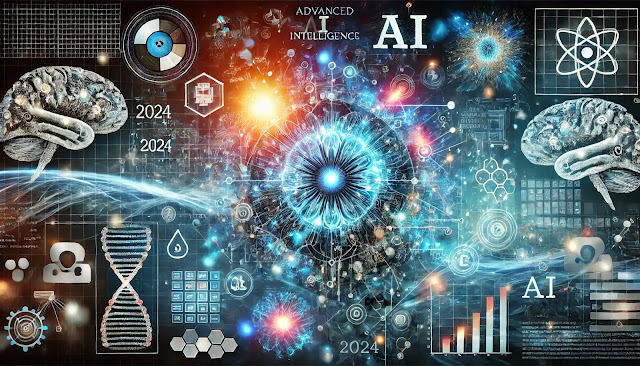AI and Machine Learning in the Cloud: A New Era of Computing
Introduction
Welcome to the new era of computing! At the crux of this revolution are Artificial Intelligence (AI) and Machine Learning (ML) technologies. These powerful tools have been making waves for years, but their integration with cloud computing has taken things to another level entirely. By harnessing the power of the cloud, AI and ML technologies become more accessible, flexible, and efficient. But what exactly does this mean for you and your business? Let's dive in and explore.
Benefits of Cloud-based AI and ML
The convergence of AI, ML, and cloud computing brings a smorgasbord of benefits:
- Scalability and Flexibility: One of the most significant advantages is the ability to scale your operations effortlessly. Whether you're a burgeoning startup or a well-established enterprise, cloud-based AI and ML services can be tailored to meet your unique needs.
- Cost-Effectiveness: Gone are the days of clunky hardware and exorbitant upfront costs. With cloud-based solutions, companies can pay for what they need when they need it, optimizing their expenditure.
- Enhanced Collaboration and Accessibility: Cloud platforms enable teams to collaborate seamlessly across geographical borders. This is particularly useful for companies with a diverse workforce.
- Security Considerations: While the cloud often raises eyebrows concerning security, in many cases, it offers robust security measures that can be on par with, or even surpass, traditional on-premises solutions.
Popular Cloud Platforms for AI and ML
The market is teeming with cloud platforms that offer AI and ML services, each with its unique features and benefits:
- Amazon Web Services (AWS): As a behemoth in the cloud services space, AWS offers a broad range of AI services, including machine learning tools like Amazon SageMaker that make it easy to build, train, and deploy ML models.
- Microsoft Azure: Known for its integrated environment, Azure Machine Learning provides a comprehensive suite of tools to develop and deploy AI solutions at scale.
- Google Cloud Platform (GCP): Google’s Vertex AI and its various ML services provide robust infrastructure to train and deploy models cost-effectively, with high-performance computing capabilities.
- IBM Cloud: IBM offers Watson, a suite of enterprise-ready AI services, including tools for ML, predictive analytics, and more.
Case Studies
Netflix's Recommendation System
Netflix has been a game-changer in the entertainment industry, and a significant part of its success can be attributed to its recommendation system, powered by ML algorithms hosted in the cloud [Netflix Tech Blog]. By leveraging AWS’s comprehensive suite of ML tools, Netflix can analyze vast datasets to tailor content recommendations to individual users’ preferences. This not only enhances user satisfaction but also boosts viewership and retention rates.
Healthcare: Google's DeepMind
In the healthcare sector, Google's DeepMind has revolutionized patient care with its cloud-based AI and ML technologies. By utilizing Google Cloud's robust infrastructure, DeepMind has developed algorithms that predict patient deterioration rates in real-time [Google Cloud Case Studies]. This has significantly improved patient outcomes and operational efficiency in hospitals.
Financial Services: Fraud Detection at JPMorgan Chase
Financial institutions like JPMorgan Chase are leveraging cloud-based ML for advanced fraud detection [AWS Case Studies]. By deploying ML models on AWS, the bank can swiftly analyze transaction patterns to identify fraudulent activities, thereby enhancing the security of financial transactions for millions of customers.
Future Trends and Predictions
The future of AI and ML in the cloud looks incredibly promising, with several trends set to redefine the landscape:
- Integration with IoT: The Internet of Things (IoT) combined with AI and ML will create smarter, more intuitive systems that can interact seamlessly.
- Advances in Natural Language Processing (NLP): Better NLP capabilities will allow machines to understand and respond to human language with unprecedented accuracy.
- Autonomous Systems and Robotics: These technologies will evolve, leading to more advanced autonomous vehicles, drones, and robotic systems capable of performing complex tasks.
- Ethics and Regulations: As these technologies advance, ethical considerations and regulations will become increasingly important to ensure responsible use and prevent misuse.
Conclusion
In conclusion, the combination of AI, ML, and cloud computing is paving the way for unprecedented innovations and efficiencies. From entertainment to healthcare and financial services, the potential applications are vast and varied. Businesses that embrace these technologies stand to gain a significant competitive edge.





Comments